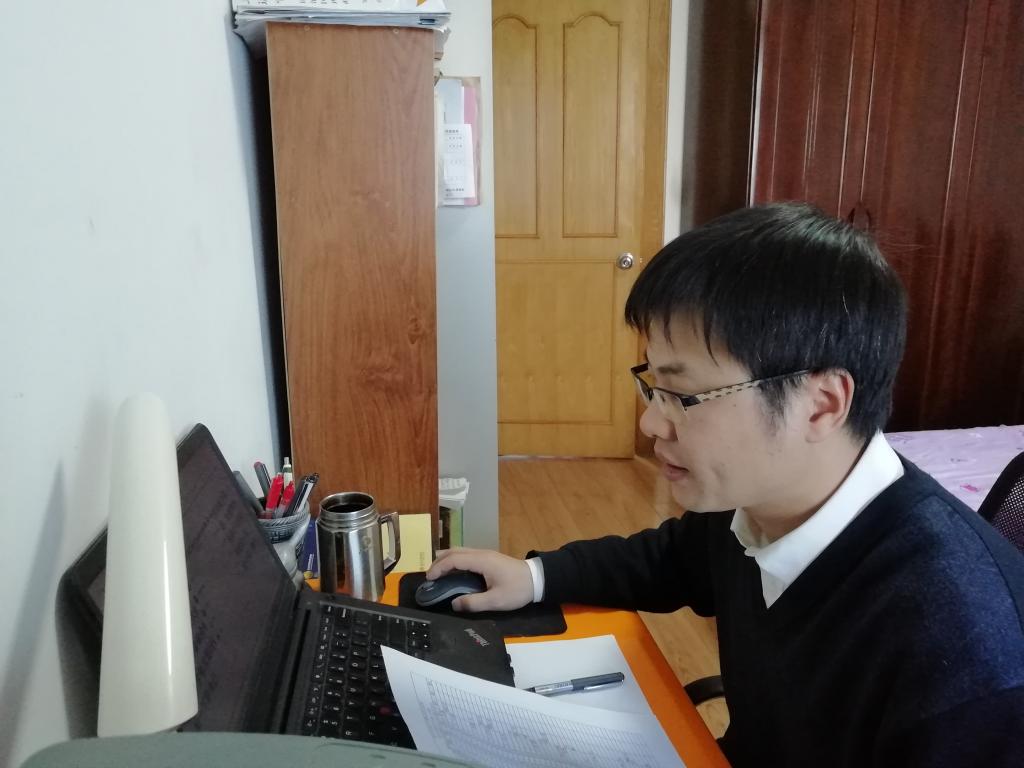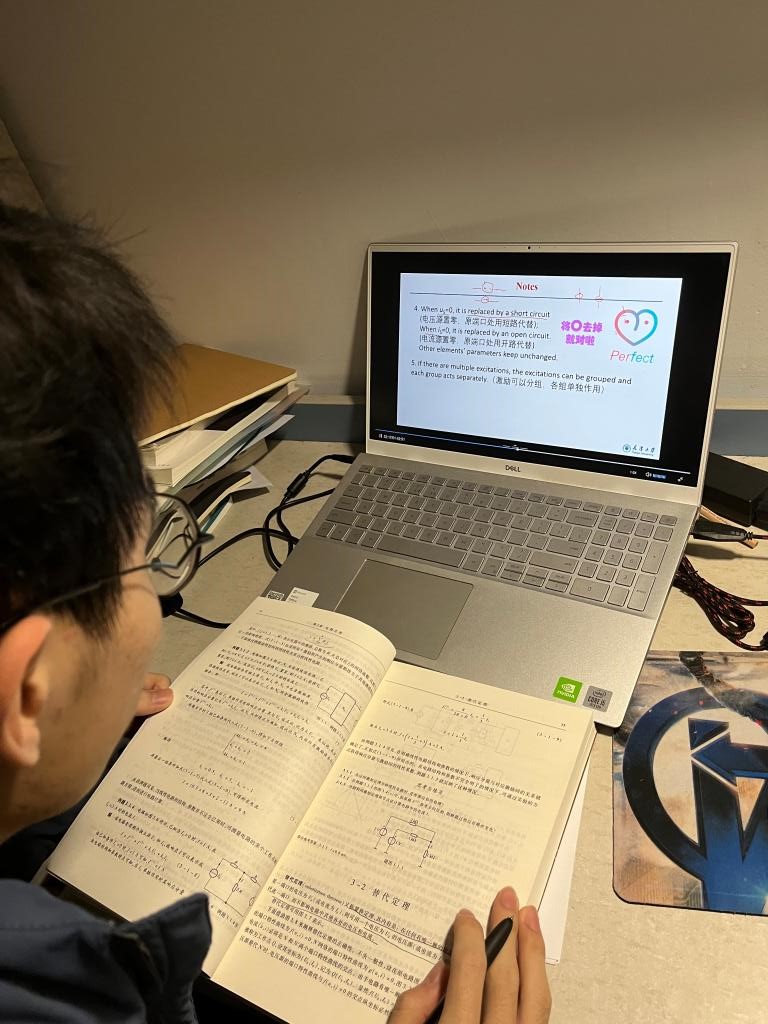Online teaching with colorful innovations such as MOOC (Massive Open Online Courses), cloud classes, flipped classrooms, online Q&A groups, among others, fully exploited the network advantages to guarantee the effectiveness of teaching and learning in the well-organized online scenes.
Grasping such opportunities, the faculty of TJU persistently improve their teaching qualities under the active explorations of online and flipped classes.
Associate Prof. Wang Yongyuan, deputy director of the Chinese Department of the School of Foreign Languages and Literature, combines his online course “Chinese Communication and Writing” with Zheng Huijiang’s “Design and Construction”, both compulsory courses for the major of Intelligent Machine Platform of Qiushi Honors College. Students practice their reports and presentations of Zheng’s course in Wang’s online classes.

With the SPOC (small private online course) constructed on MOOC, acquiring present national-level resources, Wang Yongyuan elaborately designs each teaching link of his cloud class, and gives students feedback through WeChat groups, imparting writing methods and standards of scientific documents. Whereas he switches identity with students via class presentations, perfectly boosting their practical ability under his careful instruction. “Online teaching during the pandemic deepens teaching reform, which urges teachers to advance with the times, make good use of online resources, and explore teaching philosophy and methods suitable for talent training in the new era,” Wang said. Yang Shuo, a 2020 undergraduate majoring in Intelligent Machine Platform of Qiushi Honors College, values Wang’s dedication a lot. Thanks to his cloud classes, Yang realizes the importance of self-regulated study. He thought highly of learning online, such as the convenient approach to reviewing lessons through screen records, and the more independent time arrangement.

“Inorganic Chemistry and Chemical Analysis”, the first public basic chemistry course for students majoring in Chemical Engineering, Materials, and Environment at TJU, boasts about 1,200 audiences annually. Under the requirements for pandemic prevention, relevant teaching team applies multidimensional information resources to implement blending learning online, completely student-oriented. Thorough preparations have been made early before the spring semester of 2022, including the purchase of updated devices for live streaming, construction and modification of 36 SPOCs on MOOC, and remedial plans for the possible gaps between online and offline, all hammering at quality effects. The integration of experiment and education is another highlight: the demonstrative experiments and other related sources have been combined with the SPOCs. Teachers taking part in the live streaming keep supervising and interacting with students of all levels with the help of online teaching tools. Wei Haoran, a 2021 undergraduate from the experimental class of the School of Chemical Engineering and Technology, has contrasted the virtual and real classes. He also emphasizes the clarity of the knowledge frame online due to the well-designed courseware, and views the watch-back function as a valid way to strengthen the impressions.

Another practical course that has been placed in the cloud is “Fundamentals of Circuits A”, a required course for all Electronic and Electrical Information undergraduates. Under the special circumstance, the teachers discuss and adjust corresponding solutions in detail, and finally use platforms like Rain Classroom 5.2, Voov Meeting, and pertinent SPOC to carry out the live streaming. They concern particularly the feedback in the teaching process, and implement the model education to solve puzzles jointly. Meanwhile, the course team send electronic versions of corresponding chapters to students. Plenty of adjustments for courseware have been undertaken to replace the numerous blackboard writings and keep the audience thinking actively, who may interact with the teacher instantly through the bullet comments or voice communication. After classes, there are various methods adopted by the teachers to further train and follow the students, such as the mind maps, homework explanations, questionnaire surveys, and daily online conversations, and thus the competency-based instructing model has been formed. A 2021 student majoring in Electrical Information at the School of Electrical and Information Engineering, Zhu Xinglei stressed the effectiveness of preview before online classes and the importance of taking notes while listening. “Sometimes our teachers may set up a simple game in the cloud class, so that everyone will be more active, competing to answer questions. If the classroom atmosphere becomes exciting, the type of knowledge will be mastered in the midst of fun,” said him.
By Han Shiyu
Editor: Sun Xiaofang






